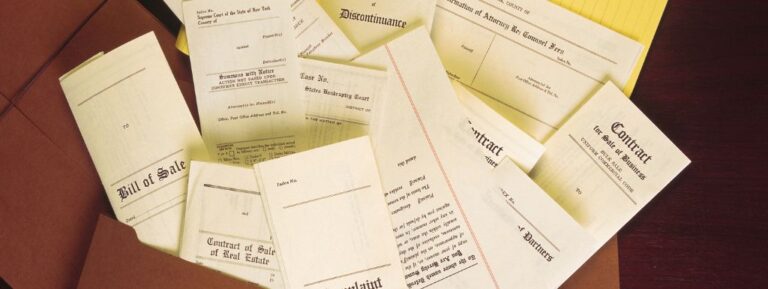Introduction
In Australia, just like in other jurisdictions, corporations are regarded as separate legal entities from their directors and shareholders. This means that a company has its own assets and liabilities, and can conduct business and enter into contracts in its own name. However, there are certain circumstances where a court may choose to disregard the company’s separate legal personality and hold its directors or owners personally accountable for the company’s actions. This is referred to as “piercing the corporate veil”. This article explores the concept of piercing the corporate veil in Australia, including the potential consequences for directors and the circumstances under which it may occur.
What is Piercing the Corporate Veil?
Piercing the corporate veil is a legal concept that enables a court to hold a company’s directors or owners personally responsible for the company’s actions. It happens when a court overlooks the company’s separate legal personality and regards the company as a mere agent of its owners or directors. Essentially, the court “pierces” the corporate veil to reveal the individuals behind the company and holds them accountable for the company’s actions.
Piercing the corporate veil is a rare and exceptional remedy that is only available in limited circumstances. The courts are generally hesitant to interfere with the separate legal personality of a company, as this is a fundamental principle of corporate law. However, there are certain circumstances where the courts may be willing to pierce the corporate veil, such as when the company is being used for illegal or fraudulent purposes, or when the company is being utilised to evade legal obligations.
When Can the Corporate Veil be Pierced in Australia?
In Australia, the courts take a cautious and conservative approach to piercing the corporate veil. The general rule is that a company’s separate legal personality will be respected, and the courts will only pierce the corporate veil in exceptional circumstances.
The courts have identified a number of factors that may be relevant in determining whether the corporate veil should be pierced, including:
- If a company is used as a sham;
- If the company is being used to perpetrate fraud or to avoid legal obligations;
- If the company is being utilised to conceal the true nature of a transaction or to deceive creditors or other third parties; and
- If the directors or owners of the company are acting in bad faith.
The courts have also held that the mere fact that a director or shareholder benefits from the actions of the company is not sufficient to pierce the corporate veil. Similarly, the fact that a company has not maintained proper books and records is not, in itself, a ground for piercing the corporate veil.
Consequences of Piercing the Corporate Veil
If the corporate veil is pierced, the consequences for the directors or owners of the company can be severe. They may be held personally liable for the company’s obligations and liabilities. They may be required to compensate any affected parties such as creditors, customers, employees, or other third parties who have suffered losses as a result of the company’s actions.
Additionally, the Australian Securities and Investments Commission (ASIC) has the power to disqualify directors from managing companies if they have breached their duties and responsibilities under the Corporations Act 2001 (Cth). This can result in directors being banned from managing companies for a period of time or permanently.
It is important for directors to be aware of their obligations and duties under the Corporations Act 2001 (Cth). Directors must act in good faith in the best interests of the company and must exercise their powers with care and diligence. They must also ensure that the company maintains proper books and records, complies with all relevant laws and regulations, and does not trade while insolvent.
Conclusion
Piercing the corporate veil is a legal concept that allows a court to hold a company’s owners or directors personally liable for the company’s actions. In Australia, the courts have adopted a cautious and conservative approach to piercing the corporate veil, and will only do so in exceptional circumstances.
The consequences of piercing the corporate veil can be severe, including personal liability for the company’s debts and obligations, regulatory and criminal sanctions, and the potential for recovery of assets in insolvency proceedings. Directors should take steps to ensure that they are complying with their duties and that the company is being operated properly and in accordance with the law.
The blog published by Rostron Carlyle Rojas is intended as general information only and is not legal advice on any subject matter. By viewing the blog posts, the reader understands there is no solicitor-client relationship between the reader and the blog published. The blog should not be used as a substitute for legal advice from a legal practitioner, and readers are urged to consult RCR on any legal queries concerning a specific situation.



